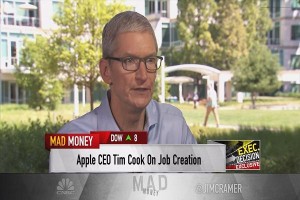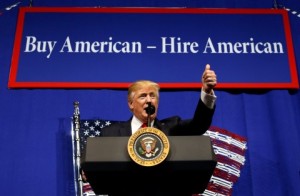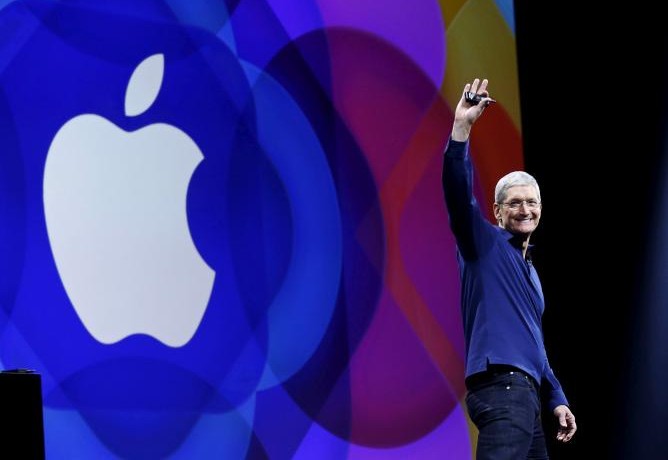-
Teachers Find New Tools to Educate Students Amid Coronavirus Pandemic
Post Views: 1,087By Neil A. Carousso
NEW YORK (WCBS 880) – As schools shift to remote learning amid the coronavirus pandemic, teachers are finding useful tools that they may incorporate next school year.
“I think that’s going to be a benefit of this crisis long-term are those teachers that are realizing that these tools can be assets to them, they’re not going to replace them and that their role is still as that guide in the classroom whether it’s face-to-face or remote,” said Alex Urrea, managing partner of Eduscape, which trains K-12 schools on how to integrate Learning Management Systems (LMS) into the classroom.
The company has trained over 750,000 educators on its partner platforms owned by Google and Microsoft.
Urrea says the technology has been available, but some educators have resisted using free platforms like Google for Education and Microsoft Teams.
Coronavirus: 6 Expert Tips for Homeschooling Your Kids
“Right now, if nothing else, the rapid migration to remote teaching and the challenges they’re in, are proving that teachers enhance technology and not the other way around,” Urrea said, adding, “You need good teachers supported by good technology, and right now, I think the technology isn’t failing them, but what’s causing struggles is not enough professional development, historically, on how to get them to use this better during these times.”
He anticipates schools will see the value of making these tools part of the curriculum next year. In many cases, LMS have been available to teachers, but it has been “underutilized,” according to Urrea.
“IT directors and schools must enable those features to work for teachers to be able to use them, especially in this environment,” he said. “Not enough training has taken place in these tools.”
Schools in the Tri-State Area have been closed to prevent the spread of COVID-19.
-
Big League Jobs: Apple to Create $1 Billion Manufacturing Fund for Blue Collar American Workers
Post Views: 2,279By Neil A. Carousso
Apple, Inc. Chief Executive Officer Tim Cook announced Wednesday on CNBC’s “Mad Money” that the iPhone maker plans to create a $1 billion investment fund in U.S. companies that perform advanced manufacturing.

Apple CEO Tim Cook on CNBC’s “Mad Money.” (Screenshot Photo: CNBC) Cook said Apple plans to fund programs that teach people how to write computer code to create mobile applications, adding that details about the initiative will be released this summer.
Since President Donald J. Trump was elected, Apple has been making an effort to disclose how the tech giant creates jobs in the United States. At the company’s annual shareholder meeting in February, Cook revealed Apple spent $50 billion in 2016 with U.S. suppliers, the first time Apple has disclosed the metric.
Cook told “Mad Money” host Jim Cramer that Apple has created 2 million American jobs with 80,000 directly at Apple and the rest from software developers and suppliers for the company’s app ecosystem.

President Trump visited Wisconsin to sign the Buy American, Hire American executive order on April 18 (Kevin Lamarque/Reuters) Below is an updated list of the “big league jobs” announcements since Mr. Trump’s election. Roughly $111.2 billion in U.S. investments has been pledged with approximately 1,883,830 U.S. jobs being created that can be credited to President Trump’s pro-growth, pro-business policies.
1. Carrier: Keeping 1,100 American jobs instead of sending to Mexico
2. SoftBank CEO Masayoshi Son: Investing $50 billion to create 50,000 American jobs
3. Sprint: Bringing back 5,000 jobs to the U.S. that were sent overseas
4. OneWeb (new company): Creating 3,000 jobs in the U.S. (associated with Son’s guarantee)
5. Ford: Cancels $1.6 billion plant in Mexico, saving 3,500 American jobs. Creating new innovative center as an expansion of its Flat Rock, MI plant by investing $700 million in the U.S. and creating 700 American jobs
6. Qualcomm and Apple will invest in SoftBank’s new technology fund, SoftBank Vision Fund that is being used to create 50,000 American jobs.
7. Fiat Chrysler announces it would spend $1 billion on U.S. manufacturing, including modernizing plants in Michigan and Ohio, adding 2,000 new American jobs.
8. Toyota will spend $10 billion in U.S. capital investments and will expand its U.S. plants over the next five years.
9. Alibaba Chief Executive Jack Ma met with Trump to discuss the creation of 1 million American jobs, specifically focusing on small business growth.
10. Amazon will create 100,000 jobs in the first year and a half of the Trump Presidency.
11. Wal-Mart will create 10,000 jobs in the U.S. this year.
12. General Motors will invest $1 billion in its U.S. factories this year, moving some parts of production from Mexico to the United States that was previously handled by a supplier.
13. Toyota will add 400 American jobs to build more SUVs at an Indiana assembly plant.
14. Amgen will add 1,600 jobs.
15. Intel will invest $7 billion in innovation in an Arizona factory, creating 3,000 specialist positions and 10,000 support jobs.
16. Delta announces it will hire 25,000 jobs over the next 5 years.
17. Lockheed Martin will create 1,800 new jobs.
18. Exxon Mobil will invest $20 billion to create 35,000 temporary construction jobs and 12,000 high-wage permanent jobs.
19. Charter Communications will invest $25 billion in broadband infrastructure over the next four years to create 20,000 high-paying, highly beneficial American jobs.
20. Ford will invest $1.2 billion in Michigan, securing 3,700 American jobs and creating 130 jobs.
21. Toyota will invest $1.3 billion to revamp its Kentucky factory, saving 8,200 American jobs.
22. Apple plans to create a $1 billion advanced manufacturing fund, promoting the creation of American jobs and education of computer code.Reuters and CNBC contributed to this report. Featured Photo is a Reuters file photo taken by Robert Galbraith of Apple CEO Tim Cook waving as he arrives on stage to deliver his keynote address at the Worldwide Developers Conference in San Francisco, California on June 8, 2015.
-
EXCLUSIVE: Former FBI Secret Agent Says You’re Vulnerable to Hackers around the World
Post Views: 2,752By Neil A. Carousso
Earlier, the Washington Post reported that Russian government hackers infiltrated the Democratic National Committee computer network, gaining access to their entire database, including Democrats’ opposition research on GOP presumptive nominee Donald Trump.
“This cyber crime is huge,” said Robert Strang, a security expert on terrorism, personal and corporate security as well as investigative matters. “There’s really no limits to what’s happening in the world right now.”

Robert Strang is the CEO of Investigative Management Group. Strang has seen security breaches in both the private and public sector throughout his career. He started as a special agent for the Federal Bureau of Investigation, working for the United States Justice Department for about 10 years before founding Investigative Management Group, a unit of Strang Holdings Corp., for which he is the Chief Executive Officer.
Strang says many cases that his company investigates involve individual hackers in the Philippines, China and Eastern Europe who steal American companies’ information from outside the U.S.
“There are not enough bad guys to buy all the available information that’s out there on the black market,” said Strang, continuing, “It would be like we’re flooded with drugs, there’s not enough drug users and you’re giving it away, almost. It’s so cheap. There’s so much, yet, there aren’t enough bad guys to buy it.”
The security expert points out the only positive thing about new technology, which makes personal, corporate and government information “vulnerable,” is the fact that it will become antiquated in a short period of time. New technology is emerging too quick in order to effectively secure.
“If you’re connected to the internet, you’re vulnerable; there’s no question about it,” said Strang.
Citing today’s Washington Post report, the DNC network has been compromised for about a year. “The intruders so thoroughly compromised the DNC’s system that they also were able to read all email and chat traffic, said DNC officials and the security experts,” journalist Ellen Nakashima wrote.
While the DNC claims no donor or personal information “appears to be accessed or taken,” this intrusion is “one of several targeting American political organizations,” writes Nakashima. Both Hillary Clinton and Trump were targeted by Russian spies. Republican political action committees were targeted, too, according to U.S. officials. Further information on those cases are not public.
Strang ensures that corporations he secures around the world have top-notch security and intelligence gathering services through the IMG platform, a company that has been successful in the high-end investigative market because of the resources of a large firm without the bureaucracy of the largest firms and government agencies.
Even with the best security systems, Strang emphasizes the importance of being selective in content included in electronic communication. Conducting business through the Internet, including e-mail, is risky. Sensitive and confidential material is best to be presented in person.
“I’m certain the government must do it as well,” said Strang adding, “You know common sense and the fact that we are being hacked and these kinds of thefts do take place on a regular basis.”










